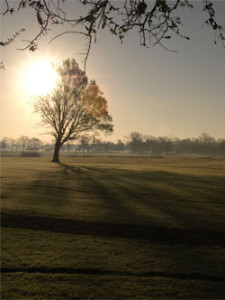I attended a writing workshop in Porto, Portugal in May 2018 and this led me to begin a new series of blogs that combine exploration of professional topics with reflections about my personal experience and life related to those topics. This series will be posted once a month, alternating with previously published posts. I look forward to your feedback on this new venture.
 I teach in a graduate program in which most of the students did not major in psychology in college, and many of them have had one or more careers prior to pursuing a master’s degree and further training to become a licensed psychotherapist. My path, however, was different from this. I decided to major in psychology as a high school senior, and my direction hasn’t changed in the more than 45 years since. Despite the differences between me and my students, I think there is an intersection between intellectual interest and personal searching that is common to all who pursue psychotherapy as a career at any stage of life. This blog post traces this intersection in my career path.
I teach in a graduate program in which most of the students did not major in psychology in college, and many of them have had one or more careers prior to pursuing a master’s degree and further training to become a licensed psychotherapist. My path, however, was different from this. I decided to major in psychology as a high school senior, and my direction hasn’t changed in the more than 45 years since. Despite the differences between me and my students, I think there is an intersection between intellectual interest and personal searching that is common to all who pursue psychotherapy as a career at any stage of life. This blog post traces this intersection in my career path.
When I was a senior in high school, I needed to take an additional social studies class to meet my graduation requirements. Psychology was offered as a one-semester elective, so I signed up without much thought or expectation. I found myself fascinated by the material almost immediately, especially when we were introduced to the ideas of Freud and the unconscious. Before the end of the semester, I had decided on psychology as my college major, though I didn’t have any idea what I would do with that knowledge or even what career possibilities might exist.
I had been a child who was observant and tried to understand the reasons for the individual behaviors and interpersonal interactions around me. I was often puzzled or distressed by what I observed, but I had no language for any of this. There was no discussion in my family about anything related to psychology, emotion, motivation, or relationships. So I was left with questions and rudimentary hypotheses that I couldn’t resolve and didn’t know how to pursue. When I began reading my high school psychology textbook, a door opened onto an entire world in which there were answers to some of my questions and words for phenomena that I had sensed but couldn’t understand or express. I began to understand that we are influenced by forces that remain unconscious but are powerful in shaping our experience and behavior.
Although my response to psychology was obviously part of an emotionally based yearning, I viewed my pursuit of psychology as primarily an intellectual exercise. Education was a strong family value, and the consequences for not responding to my mother’s call for help in the kitchen were different if I was reading a book than they would have been if I had been playing a game with my sisters. Reading was my favored strategy for exploring the world from an early age, and I was rewarded for my academic accomplishments. Books were accessible to me from weekly trips to the library, and I tried to use them to learn about emotions, relationships, conflict, how to navigate differences, how to create closeness, and how to express what was inside of me. Prior to my exposure to psychology in high school, I had used biographies and novels to explore these concerns. As a psychology major, I had whole textbooks and semester long courses through which to focus my attention on these compelling interests.
During college, I developed a plan to become a therapist knowing this would require a graduate degree. At this point, the balance between intellectual interest and personal searching tipped toward the personal side but without my conscious awareness of all of the factors leading me to this career path. On the surface, I was moved by books describing children and adults who were imprisoned by deep sadness and pain that was explored and healed in the therapeutic process. I was also intrigued by my study of family systems and the powerful forces on individuals within the family system. Below the surface and outside of my conscious awareness at the time, there were episodes of unacknowledged depression in myself and other family members which led to mostly unsuccessful attempts to provide solutions to a problem that couldn’t be named. My introduction to family systems theory led me to notice how my sense of identity and my behavior were influenced by relationships in and outside of my family.
In time, of course, I would become more familiar with the emotional forces that made my choice of study and profession so compelling. This knowledge came gradually, as I found the support I required to help me understand and face the impact of my early life. I was fortunate to have intellectual and educational pursuit as an internal and family value to lead me to the time and place when I had the academic, therapeutic, and personal support to integrate the personal part of my professional journey.
What aspects of your intersecting intellectual interest and personal searching are brought to mind as you read about my journey?
